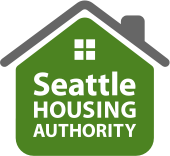SEATTLE—August 1, 2006—Members of Congress left town last month without giving final passage to the budget for the Department of Housing and Urban Development which funds most of Seattle Housing Authority’s programs.
Appropriations talks have been further complicated by the fact that rising utility costs are likely to cause increased shortfalls in current housing authority funding nationwide.
Public housing agencies across the country are urging Congress to fix immediate budget shortfalls that are occurring because HUD ignored projections in late 2005 that this year’s utility costs would skyrocket.
Housing authorities have been currently running on only 92 percent of what HUD itself estimates they need. HUD is now saying that housing authorities can expect only 85 percent of what they need – retroactive to the first of the year.
The problem is that after HUD realized in the fall of 2005 that utility costs were going to eat up an additional $200 million out of the public housing allocation, they did not ask for additional funding. As a result, even public housing authorities that are not experiencing utility hikes are being hurt. (The final numbers, which came out in June, show a deficit closer to $300 million.)
SHA budget analysts predict that for every one percent drop in operating subsidy, SHA would experience an additional $150,000 shortfall compared to what was expected.
"It is important for us to keep pushing back against the ongoing erosion of housing subsidy," said Tom Tierney, SHA's executive director. "Over the last six years, federal funding for public housing has been reduced by a billion dollars!"
Public housing industry groups and resident advocates are calling on Congress to approve an emergency $300 million supplemental for FY 2006, approve an additional $300 million in Operating Fund appropriations for FY 2007 to help meet utility costs and, at a minimum, adopt the provisions of the Senate Appropriations bill.
The House of Representatives Appropriations Committee approved its version of the bill containing the 2007 fiscal year HUD budget, HR 5776, on June 9, and the full House approved the measure on June 14. The Senate Appropriations Committee has considered the bill, but is unlikely to send it to the full Senate until after the November election, when Congress is expected to meet in a lame-duck session. Then the two bills will have to be reconciled in a joint House-Senate committee.
The House of Representatives proposes to fund HUD at $35.3 billion, $1.2 billion above the president’s request and $1.7 billion above last year. The Senate committee approved a larger sum, $36 billion.
The administration had proposed to cut total HUD funding in FY 2007 by 3.9 percent in real terms (that is, below 2006 levels adjusted for inflation). It sought substantial cuts in public housing, the Community Development Block Grant, and new affordable housing for the elderly and for people with disabilities. Legislators did not approve many of the administration’s proposed cuts.
Among the budget items in the House-approved version of the HUD budget:
-
The public housing capital fund is increased by $30 million. The administration had recommended capping the Public Housing Capital Fund at $2.2 billion, a 10.7 percent reduction from FY 2006.
-
The House approved $3.56 billion for the federal share of Public Housing Authorities’ operating expenses. This amount is the same as both the amount enacted for FY 2006 and the administration’s budget request.
-
The Tenant-Based Rental Assistance Program (Section 8) is funded at $15.9 billion, $458 million over last year and $44 million below the president’s budget request. The cost of this program alone is over 45 percent of HUD’s total budget.
